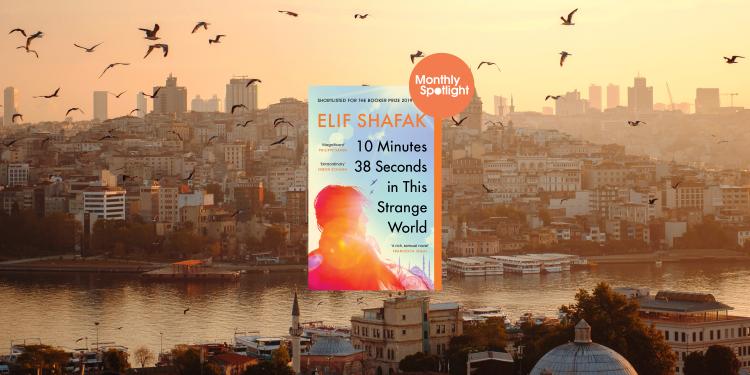Sarah Jilani, The Times Literary Supplement
‘After Leila’s narrative reaches full circle with her murder, the perspective switches to that of her five friends. They are devastated to learn that Leila has been buried in an unmarked grave, and proceed to dig her up in the middle of the night. The scene is somewhat farcical – and not necessarily in a good way. Likewise, Shafak’s highly figurative language (“maybe she was only a half-broken horse”) will divide readers. But the author should be commended for her unflinching confrontation of a range of themes that will resonate well beyond contemporary Turkey: victim blaming, the policing of women’s behaviour, stigma surrounding disability, and violence against sex workers. Above all, Elif Shafak shows how Turkey’s diversity, long feared and denied by its powerful, lives on in the personal histories of its migrant multitudes in “old, manic” Istanbul.’
Francesca Segal, Financial Times
‘As Turkish writers know all too well, it is impossible for fiction to be truly apolitical and reading Shafak, one wouldn’t want it to be. Never didactic, here is an object lesson in how fiction can at once entertain and enlighten. Faint traces of magic and superstition linger, and Leila’s heightened state is reflected in the prose, which is lush and rich and lucid. This is a novel that gives voice to the invisible, the untouchable, the abused and the damaged, weaving their painful songs into a thing of beauty.’
Mirza Waheed, The Guardian
‘Shafak takes a piercing, unflinching look at the trauma women’s minds and bodies are subjected to in a social system defined by patriarchal codes. It’s a brutal book, bleak and relentless in its portrayal of violence, heartbreak and grief, but ultimately life-affirming.’
Keija Parssinen, Los Angeles Review of Books
‘What works as oration can lose depth and texture when translated to the page; here the quality of characters’ thoughts and reflections don’t always sustain readerly interest in the plot. There’s a certain looseness with language in Shafak’s books, something that might also be attributed to the primacy of storytelling in her work. She regularly employs clichés like “shook like a leaf” and “heavy like lead,” perhaps because singular and precise language matters less than sharing a propulsive yarn. She’s an extremely prolific writer; at times reading her books, it feels as if something in the art has been sacrificed in order to keep up with her impressive imagination.’
Michelle Lancaster, World Literature Today
‘Shafak’s themes are timely and timeless: sex workers and trafficking, the exploitation of refugees, secrets that corrupt, willful ignorance, violence on a grand scale as well as up close and personal, love lost and found, and treacherous hope, which we cannot live with or without. Though often grim, Shafak leavens her story with arch humor and wordplay. “If Paris was the city of love, Jerusalem the city of God, and Las Vegas the city of sin, Istanbul was the city of multitasking.” Shafak is multitasking throughout.’
Chika Gujarathi, Bookpage
‘These recollections, which begins from her birth in January 1947 to her death in November 1990, give glimpses of life as a woman in a country where personal, political and moral values are heavily dictated by religion and men. These glimpses are heartbreaking. They are unfair. And yet they also represent courage, beauty and hope, like a rag-tag team of misfits who are determined to stick it to the man against all odds … Shafak grew up in a lonely and curious world suspended between her independent, forward-thinking mother and a more spiritual, uneducated, old-world grandmother. This remarkable coexistence has made her not only the most widely read female author in Turkey but also an award-winning international author and TED speaker.’










